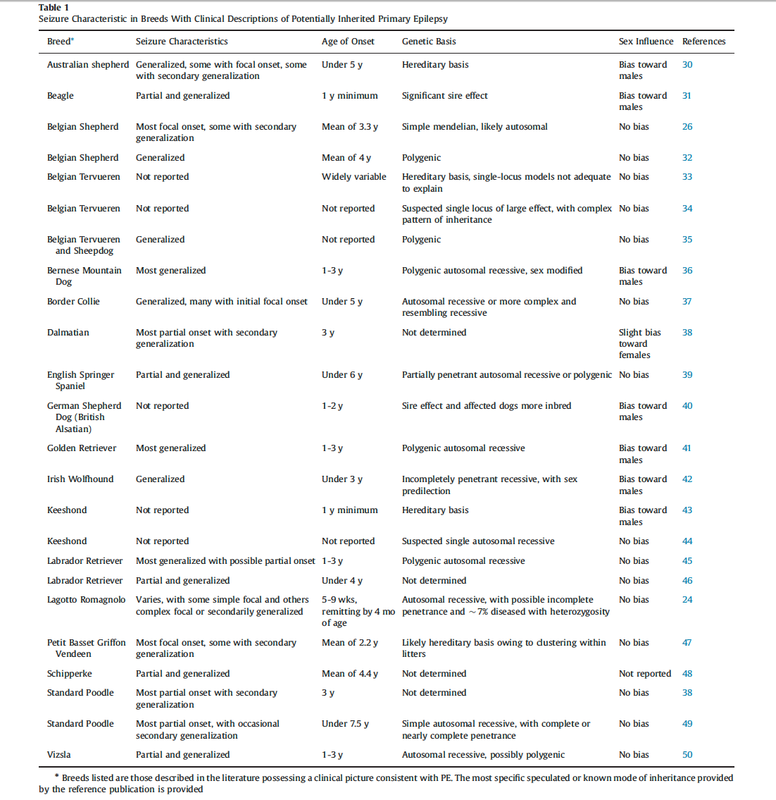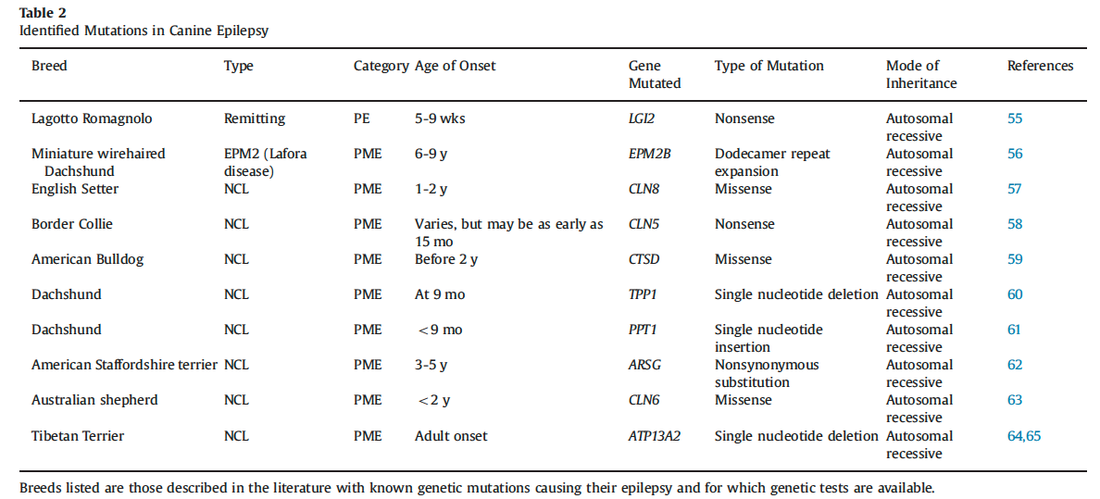Epilepsy
by Carol Beuchat PhD
Data from -
- Ekenstedt KJ & AM Oberbauer 2013 Inherited epilepsy in dogs. Topics in Companion Animal Medicine 228:51-58.
There are many forms of epilepsy and other seizure disorders in dogs that are thought to have a genetic basis. Mutations have been identified for two types of epilepsy, primary epilepsy (PE) and progressive myoclonic epilepsies (PME; also called reactive or metabolic epilepsy). PE is clearly polygenic but only 1 mutation has been identified, whereas 9 are known to be associated with PME. There are genetic tests available for these 10 mutations. Apart from these, specific genes that might be causal for epilepsy have remained elusive, and studies suggest that inheritance is probably complex and involves many genes as well as environmental (non-genetic) factors. A number of breed-specific mutations have been discovered (including those for Belgian Tervuren, miniature wirehaired Dachshund, and Lagotto Romagnolo), and all of these are autosomal recessive, indicating that they are likely a consequence of expression as a consequence of increased genetic homozygosity from inbreeding. There is evidence in Poodles that suggests that the genetics of PE could differ among lines within the same breed, complicating the search for causal mutations.



